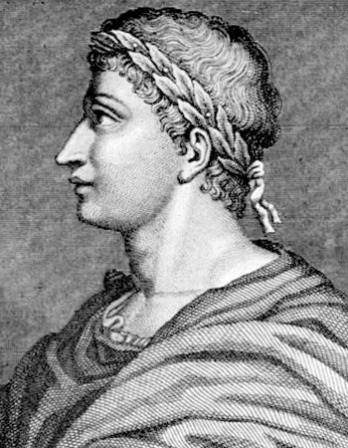Pompey had won many battles, had brought into subjection many potentates and kings, some by war and some by treaty; he had colonized eight cities, had opened up many lands and sources of revenue to the Romans. But the act for which credit particularly attaches to Pompey himself—a deed forever worthy of admiration—I will now relate.
He had enormous power both on sea and on land, he had supplied himself with vast wealth from the captives, he had made numerous potentates and kings his friends, and he had kept practically all the communities which he ruled well-disposed through benefits conferred. And although by these means he might have occupied Italy and gained for himself the whole Roman power—since the majority would have accepted him voluntarily, and if any had resisted, they would certainly have capitulated through weakness—yet he did not choose to do this. Instead, as soon as he had crossed to Brundisium, he dismissed all his forces on his own initiative without waiting for any vote to be passed in the matter by the senate or the people and without concerning himself at all even about their use in the triumph. He did not so much as assume any additional name from his exploits, although he might have taken many.
As for the triumph, although according to strict precedent it was not lawful for it to be held without the presence of those who aided in winning the victory, he nevertheless accepted it when voted to him. He celebrated the triumph in honor of all his wars at once, including in it many trophies beautifully decked out to represent each of his achievements, even the smallest, and after them all came one huge one, decked out in costly fashion and bearing an inscription stating that it was a trophy of the inhabited world. He did not, however, contrive to receive any other extravagant honor or even accept such as had been voted him in his absence, except on a single occasion. These consisted in the privilege of always wearing the laurel wreath at all public games and arraying himself in the cloak of a general at all of them, as well as in the triumphal garb at the horse races.
These honors, then, they granted Pompey in his absence, but none when he had come home, though they would certainly have added others had he wished it. At any rate they had often bestowed many extravagant distinctions upon other men who had possessed less authority than he, but it is clear that they had done so unwillingly. Now Pompey knew well that all the gifts granted by the multitude to the powerful who are in positions of authority contain the suggestion, no matter how willingly they are voted, of being forcibly granted at the instigation of the strong—and that they bring no glory to those who receive them, because it is believed that they have been obtained not from willing donors but under compulsion, and not from goodwill but as a result of flattery. Hence he did not permit anyone to propose any measure whatever. This course he declared to be far better than to reject what has once been voted you: the one course arouses hatred for the high position that led to such measures being passed, and argues arrogance and insolence in not accepting what is granted you by those who think themselves your superiors or at any rate your equals; whereas by the other course you are truly democratic both in name and in fact, not merely by way of display, but in very truth. Thus Pompey, after having received practically all the offices and positions of command contrary to precedent, was now unwilling to accept any other such honors that were liable to bring him merely envy and hatred, even from the very givers, without enabling him to benefit anyone or to be benefited.
From Roman History. At a typical triumph, the celebrated general had his face painted red, wore a purple-and-gold tunic and toga, and grasped an ivory scepter in his left hand and a laurel branch in his right. A slave held a crown above the general’s head, while continually reminding him that he was mortal. Dio’s eighty-book history of Rome begins with the arrival of Aeneas in Italy and ends with his own election to consulship. He died in 235.
Back to Issue




